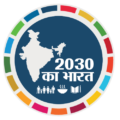When it comes to addressing the critical issue of climate action and sustainability, India’s commitment to the Sustainable Development Goals (SDGs) for 2030, also known as SDG 2030, stands as a beacon of hope and a model for the world to follow. In this comprehensive article, we will delve deep into India’s pledge to achieve these global goals, explore the specific SDG targets in India, and shed light on the initiatives and strategies that have positioned India as a frontrunner in the quest for a sustainable future.
Sustainable Development Goals (SDG Goals)
The Sustainable Development Goals (SDGs) are a set of 17 interconnected global goals adopted by the United Nations in 2015 as part of the 2030 Agenda for Sustainable Development. These goals encompass a wide range of social, economic, and environmental challenges, with the ultimate aim of eradicating poverty, protecting the planet, and ensuring prosperity for all.
India’s Bold Commitment to SDG 2030
India, with its vast and diverse population, faces unique challenges and opportunities in achieving the SDGs. However, it has demonstrated an unwavering commitment to this global agenda. The Indian government, under the leadership of Prime Minister Narendra Modi, has consistently emphasized the importance of sustainable development and environmental preservation.
2030KaBharat: India’s Vision for Climate Action
In line with the SDGs, India has introduced its own vision known as “2030KaBharat,” which translates to “India of 2030.” This vision outlines the nation’s aspirations and strategies for the year 2030, aligning closely with the global SDGs. It encompasses a range of ambitious goals, such as ensuring universal access to clean energy, eradicating hunger, and achieving gender equality.
Specific SDG Targets in India
To achieve the overarching goals of SDG 2030, India has set forth a set of specific targets that address various aspects of sustainability. These targets cover a wide spectrum of areas, including poverty alleviation, healthcare, education, clean energy, and environmental conservation.
1. No Poverty
India’s commitment to eradicating poverty is evident in its emphasis on inclusive growth. The government has launched various schemes and initiatives aimed at lifting millions of people out of poverty. Through measures like the Pradhan Mantri Awaas Yojana (PMAY), the Jan Dhan Yojana, and the MUDRA scheme, India is making significant strides towards ensuring that no one is left behind.
2. Zero Hunger
India’s agricultural sector plays a pivotal role in achieving zero hunger. The government’s focus on doubling farmers’ income by 2022 and implementing programs like the National Food Security Act are vital steps toward ensuring food security for all its citizens.
3. Good Health and Well-being
India recognizes the importance of accessible healthcare for its citizens. Initiatives like Ayushman Bharat, the world’s largest government-funded healthcare program, aim to provide quality healthcare services to all, with a special focus on the underprivileged.
4. Quality Education
Education is the cornerstone of sustainable development. India’s emphasis on quality education is reflected in initiatives like Sarva Shiksha Abhiyan and the National Skill Development Mission, which aim to enhance the education and skill levels of its workforce.
7. Affordable and Clean Energy
As the world’s third-largest energy consumer, India is committed to transitioning to clean and sustainable energy sources. The ambitious National Solar Mission and the Ujwal DISCOM Assurance Yojana (UDAY) are just a couple of examples of India’s strides in this direction.
11. Sustainable Cities and Communities
India is urbanizing rapidly, and to ensure sustainable development, it is imperative to create livable and sustainable cities. The Smart Cities Mission, with its focus on infrastructure development and technological advancements, is a testament to India’s commitment to building resilient urban areas.
13. Climate Action
Addressing climate Action is a top priority for India. The country has set ambitious targets to reduce its carbon emissions and increase its renewable energy capacity. The National Action Plan on Climate Change and the International Solar Alliance are key initiatives that underline India’s dedication to combating climate action.
17. Partnerships for the Goals
India understands that achieving the SDGs requires collaboration at the global level. The country actively participates in international forums, partnerships, and agreements to promote sustainable development.
India’s Sustainable Success Stories
India’s journey towards SDG 2030 has been marked by significant achievements and success stories. One such notable achievement is its rapid expansion of renewable energy capacity. India has become a global leader in solar and wind energy production, thanks to initiatives like the Solar Energy Corporation of India (SECI) and the Jawaharlal Nehru National Solar Mission.
Another remarkable success story is India’s effort to provide clean cooking fuel to its citizens. The Pradhan Mantri Ujjwala Yojana, which aims to provide free LPG connections to underprivileged households, has transformed the lives of millions, reducing indoor air pollution and improving health.
Challenges on the Path to SDG 2030
While India has made substantial progress towards achieving the SDGs, it faces various challenges, including income inequality, environmental degradation, and access to quality healthcare and education. Tackling these challenges requires a concerted effort from the government, civil society, and the private sector.
India’s commitment to SDG Goals is not just a pledge but a reality that is transforming the lives of its citizens and setting an example for the world. With comprehensive policies, innovative initiatives, and a clear vision for 2030, India is on track to achieve the Sustainable Development Goals. The journey is marked by successes, but challenges persist, making it an ongoing endeavor that requires dedication and collaboration.
India’s commitment to SDG Goals is a testament to its dedication to building a sustainable future for its people and the world. It serves as an inspiration for other nations to follow suit in the pursuit of a better, more sustainable planet.
